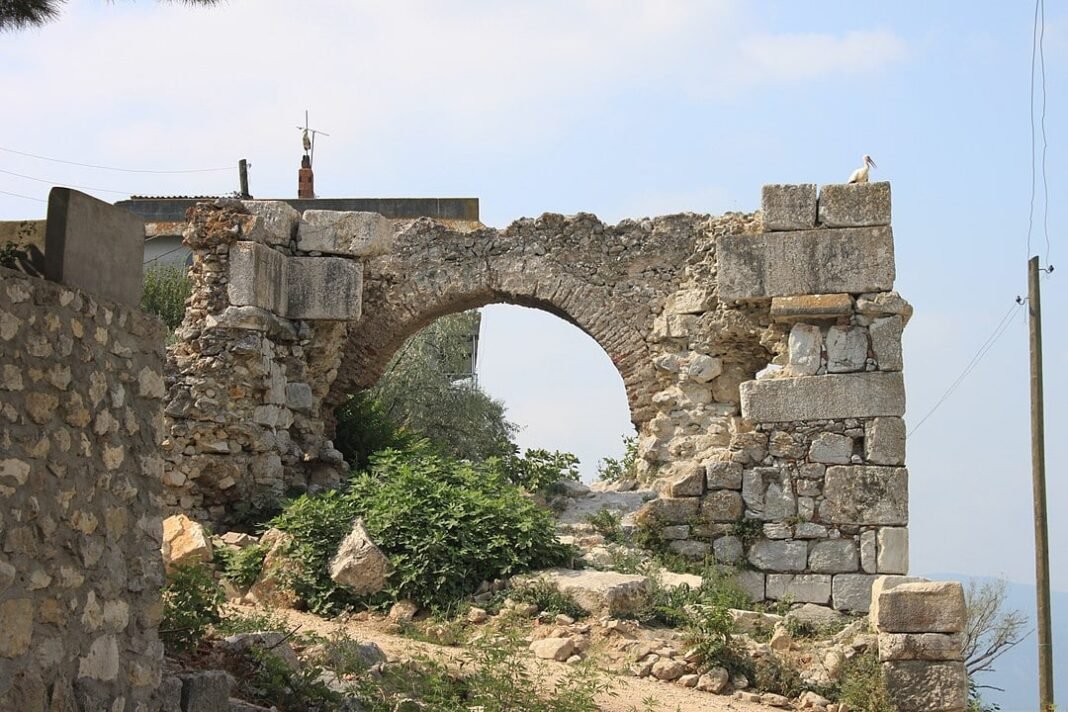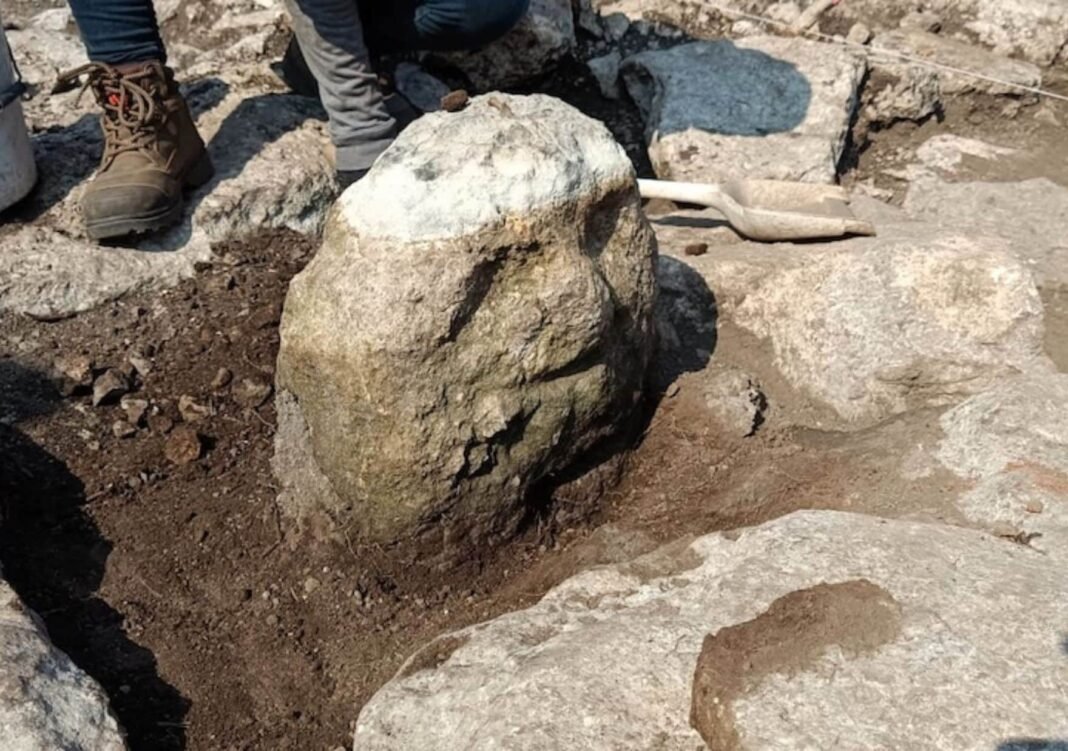
Archaeologists in Gölyazı, Turkey, have uncovered a Greek inscription carved into a seat in a Roman-era theater, revealing the name of a female priestess who lived nearly two thousand years ago.
The discovery, made at the ancient Greek city of Apollonia (Greek: Ἀπολλωνία), dates to the 2nd century and offers new insight into the public and religious visibility of women in antiquity.
The name, “Lonidos,” (Greek: Λωνιδος) was found engraved on a marble seat in the uppermost tier of the theater, known as the summa cavea. Researchers believe the seat belonged to a high-ranking woman who served as a priestess, honored with a reserved place in the city’s main public venue.
The Hellenistic legacy of Apollonia ad Rhyndacum
The inscription is written in Greek, reflecting the Hellenistic roots of Apollonia ad Rhyndacum—named after Apollo, the Greek god of light, music, and prophecy. The city, founded by Greek settlers along the Rhyndacus River, became part of the Roman Empire yet continued to speak Greek and follow Hellenic traditions.
Archaeologists in Turkey uncovered a Greek inscription on a Roman-era theater seat in ancient Apollonia, revealing the name Lonidos — a female priestess honored nearly 2,000 years ago. A rare glimpse into women’s public roles in antiquity.#Archaeology #History #AncientGreece pic.twitter.com/nY5tQf1UCk
— Tom Marvolo Riddle (@tom_riddle2025) November 12, 2025
Even under Roman administration, civic life, language, and religion in Apollonia retained strong Greek characteristics. Scholars say the discovery underscores how Greek culture shaped much of western Anatolia for centuries, blending seamlessly into Roman provincial life.
Priestess honored in a public setting
Prof. Dr. Derya Şahin, head of the excavation team from Bursa Uludağ University’s Archaeology Department, described the discovery as highly significant. She said finding a woman’s name carved into a theater seat suggests formal recognition within a public and sacred space. The inscription, she added, offers rare evidence of women’s active participation in religious and civic life nearly 1,800 years ago.
Şahin noted that seats in the upper cavea were often reserved for influential figures. The presence of a woman’s name there, she said, challenges long-held assumptions about gender and social status in ancient societies.
Architecture shaped by Greek and Roman traditions
The ancient theater, located on a hill overlooking Uluabat Lake in Bursa’s Nilüfer district, could once accommodate about 5,000 spectators. Built during the Hellenistic period and later expanded under Roman rule, it combines Greek architectural principles with Roman engineering.
In the theater section of the Apollonia ad Rhyndacum Ancient City excavation, which is expected to shed light on the Hellenistic-era settlement of the region in the touristic Gölyazı neighborhood of Nilüfer, Bursa 🇹🇷, considered one of Europe’s most beautiful towns, 42 spectator… pic.twitter.com/DOHs4DEced
— ArchaeoHistories (@histories_arch) November 12, 2025
The structure features tiered seating, VIP sections similar to modern boxes, and an orchestra area roughly 28 meters (92 feet) wide. Its design reflects the cultural dialogue between Greece and Rome, where art, religion, and civic gatherings intersected.
Preserving a shared heritage
Archaeologists have recovered 42 seats so far, many displaced over centuries. Using a restoration technique known as anastylosis, they are reassembling the original materials to preserve the site’s authenticity.
The team says the discovery of Lonidos’ name transforms the theater from a ruin into a story of identity, faith, and cultural continuity. Though located in modern Turkey, Apollonia’s remains reveal a world where Greek language, architecture, and religion flourished under Roman rule.
As restoration continues, researchers hope to learn more about Lonidos and the community she served. Each inscription, they say, brings ancient voices closer—reminding us that even a single carved name can bridge the histories of Greece and Rome in ancient Anatolia.


